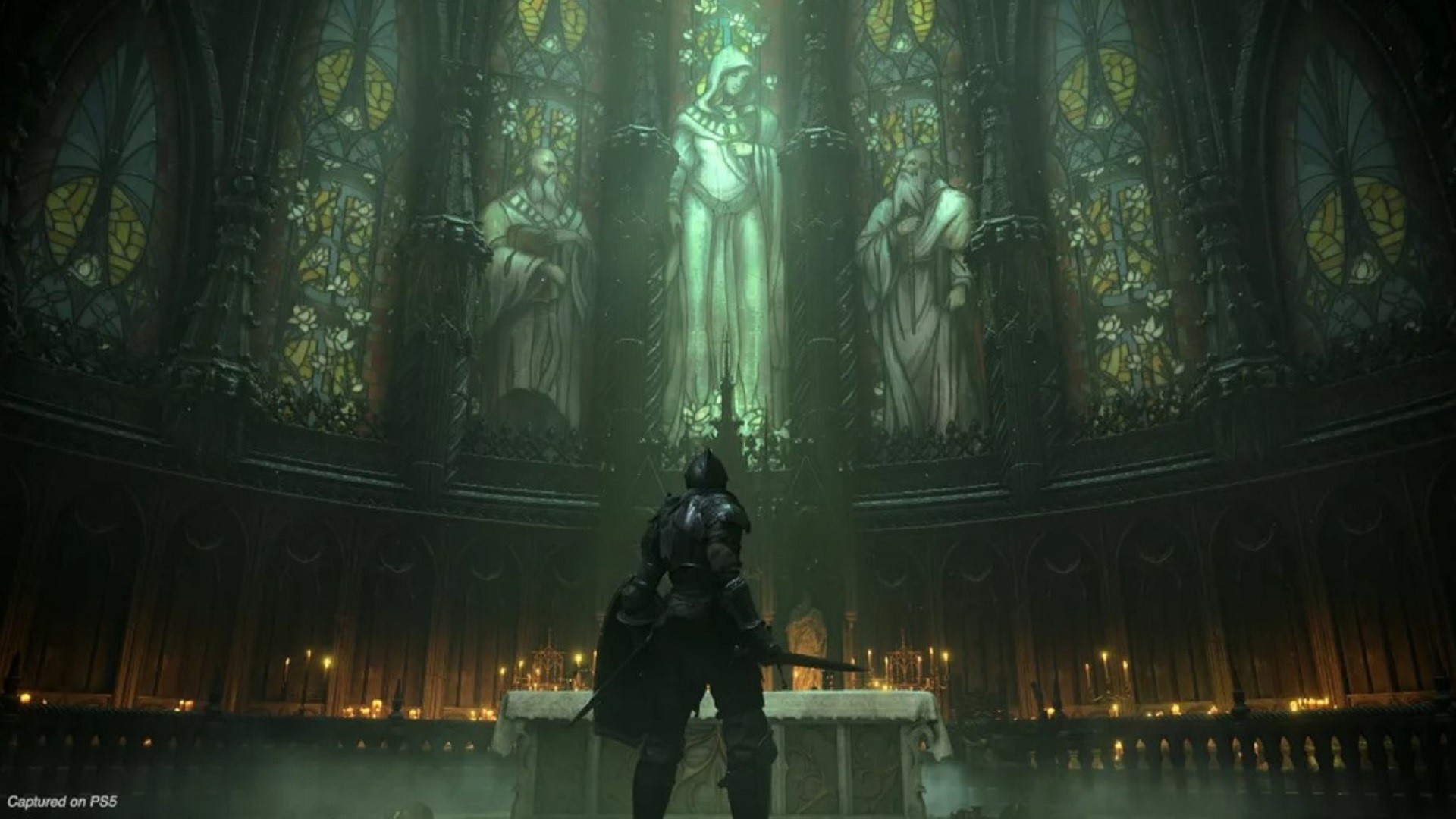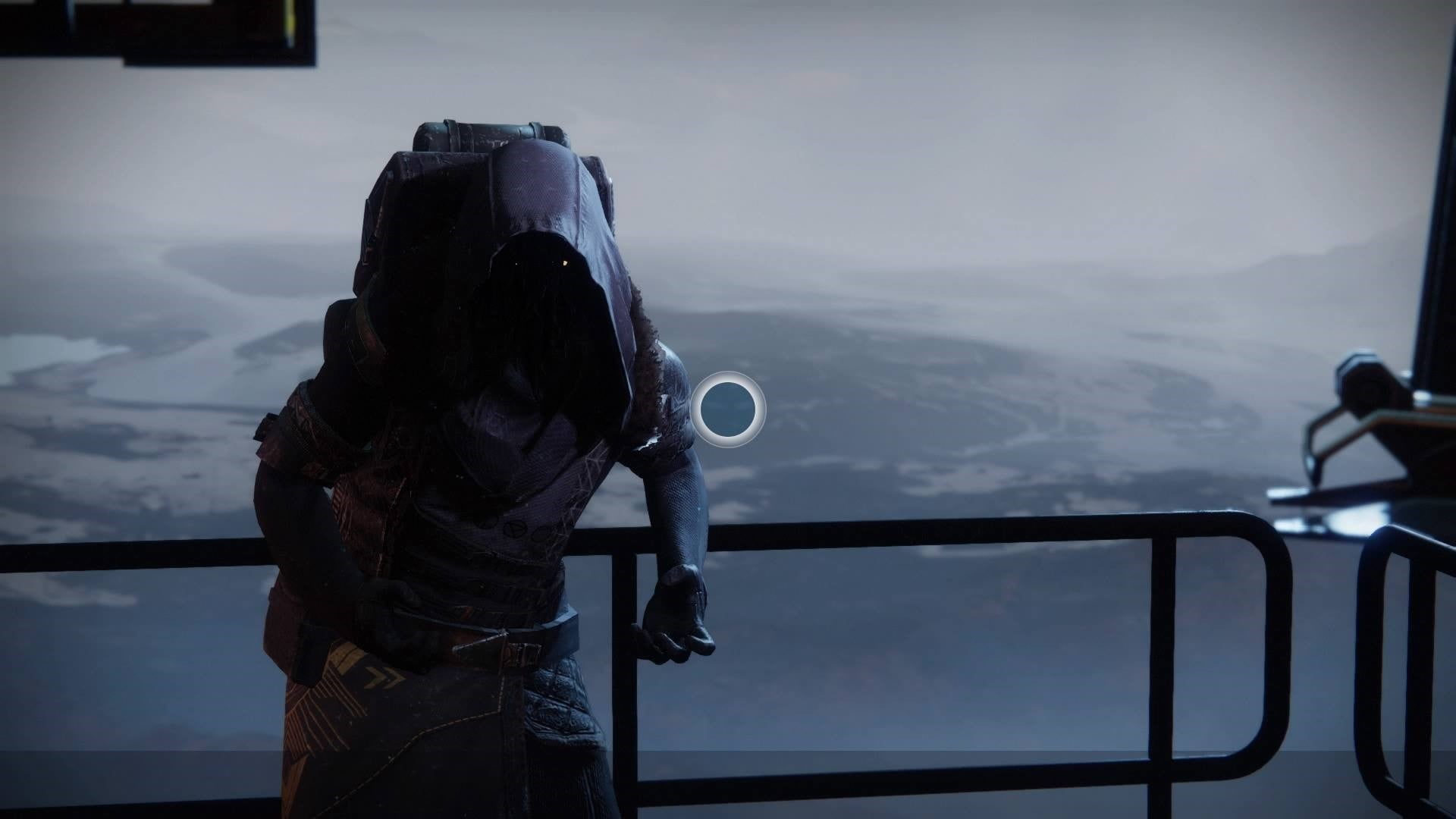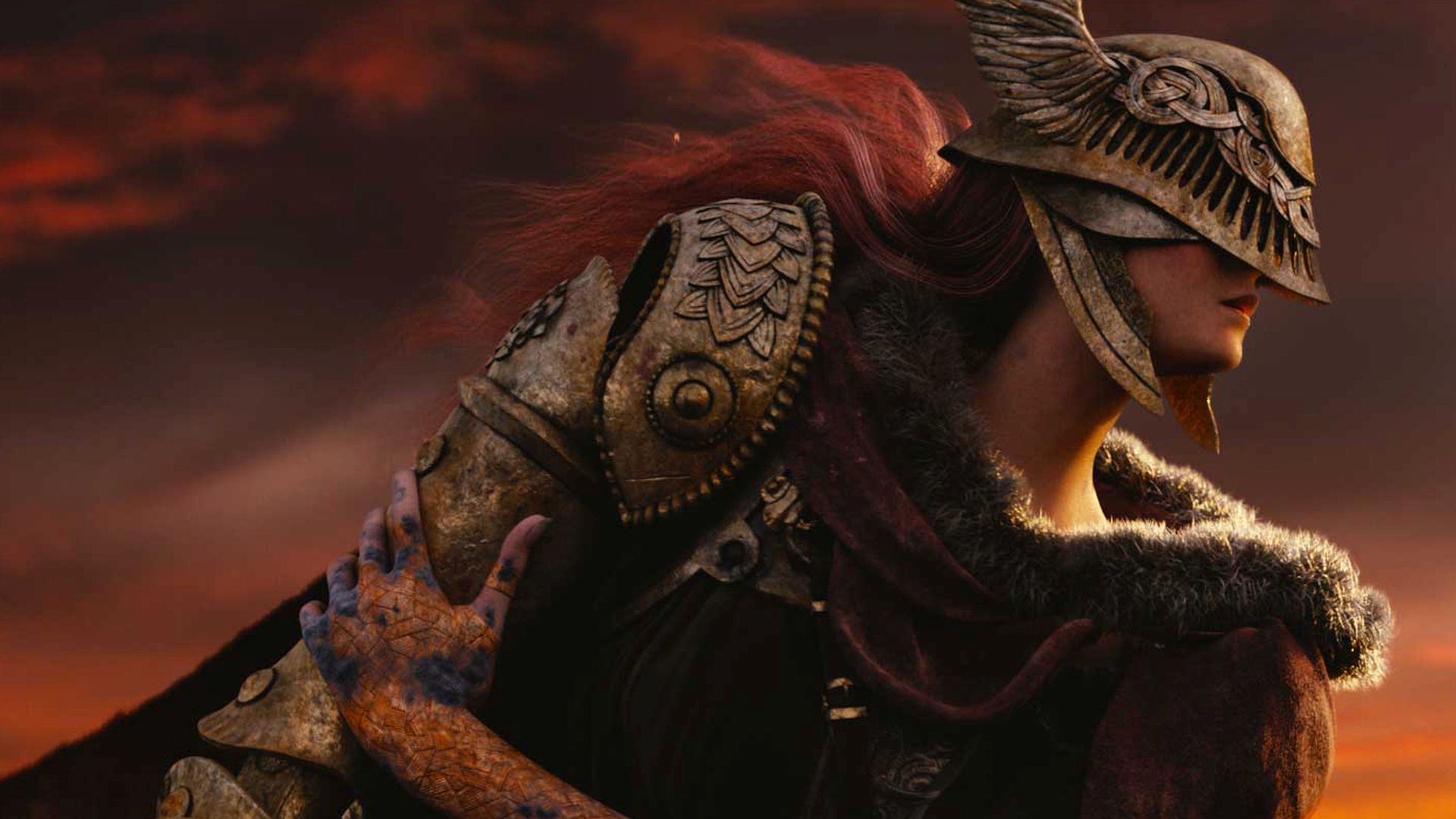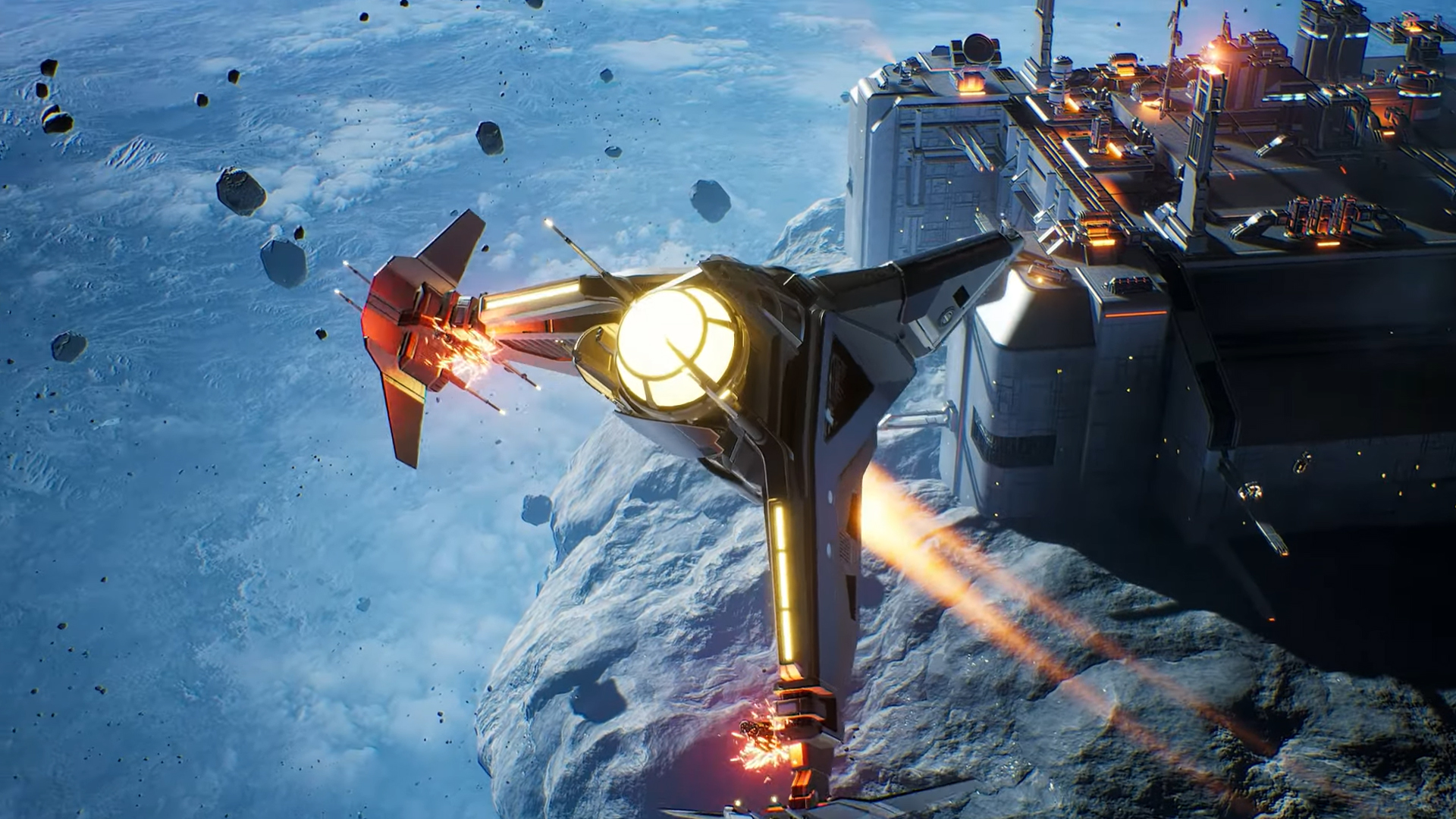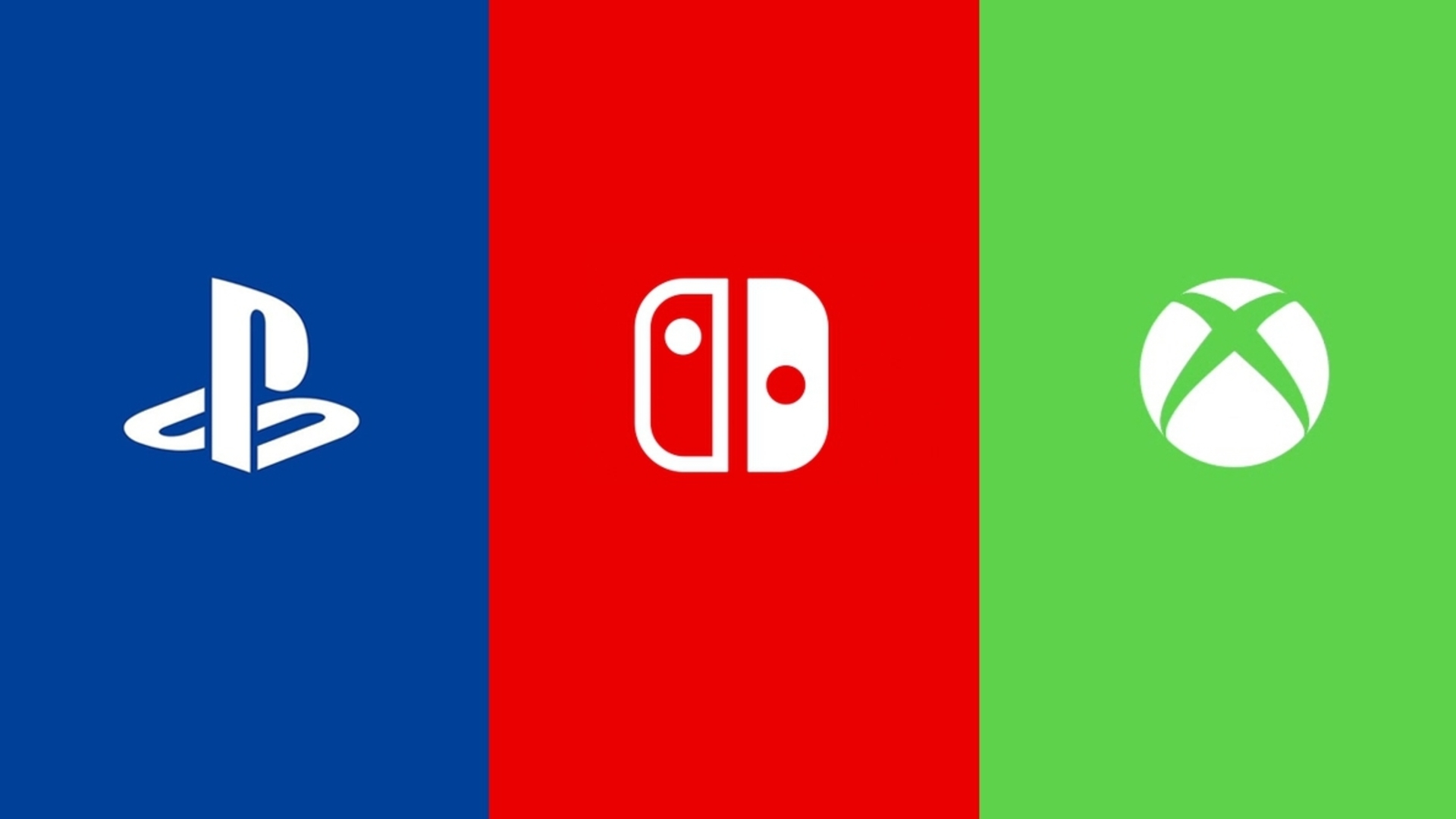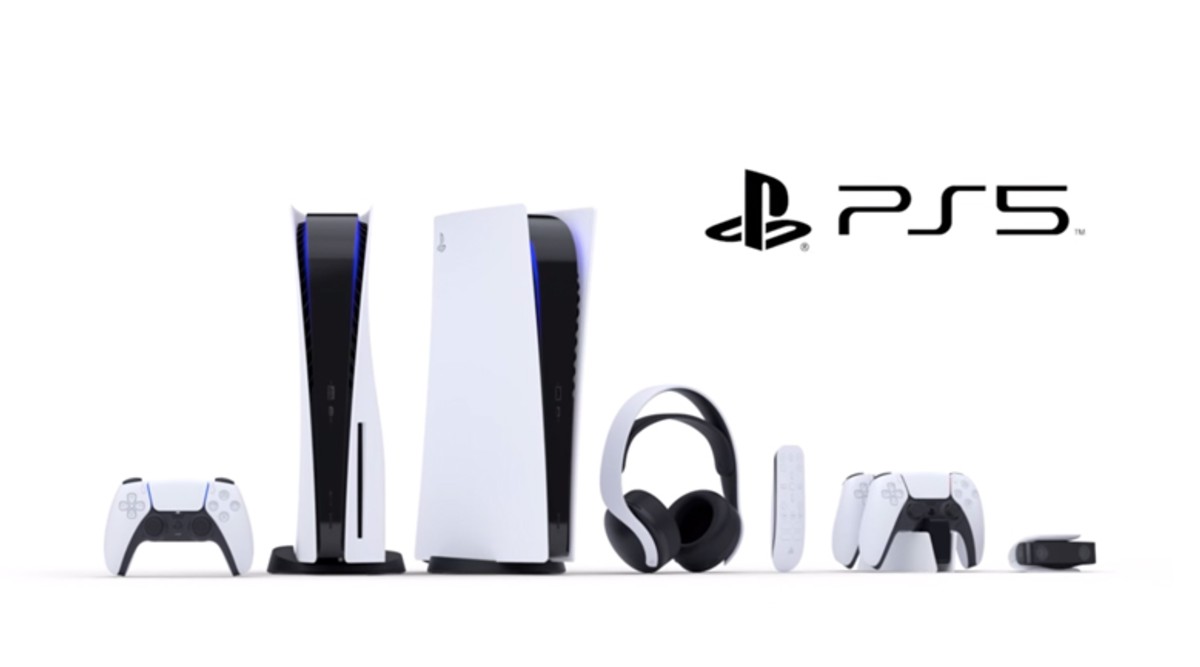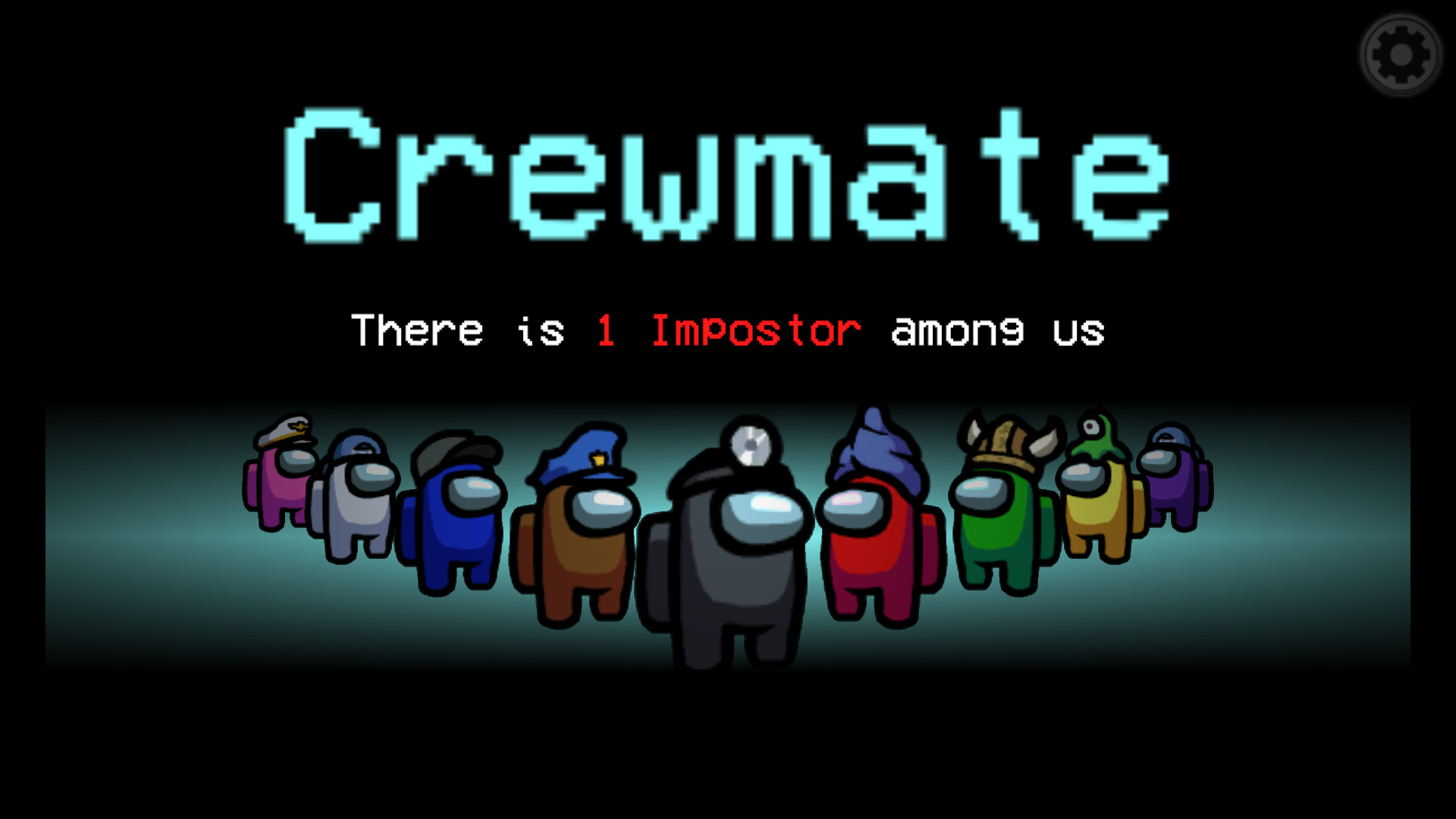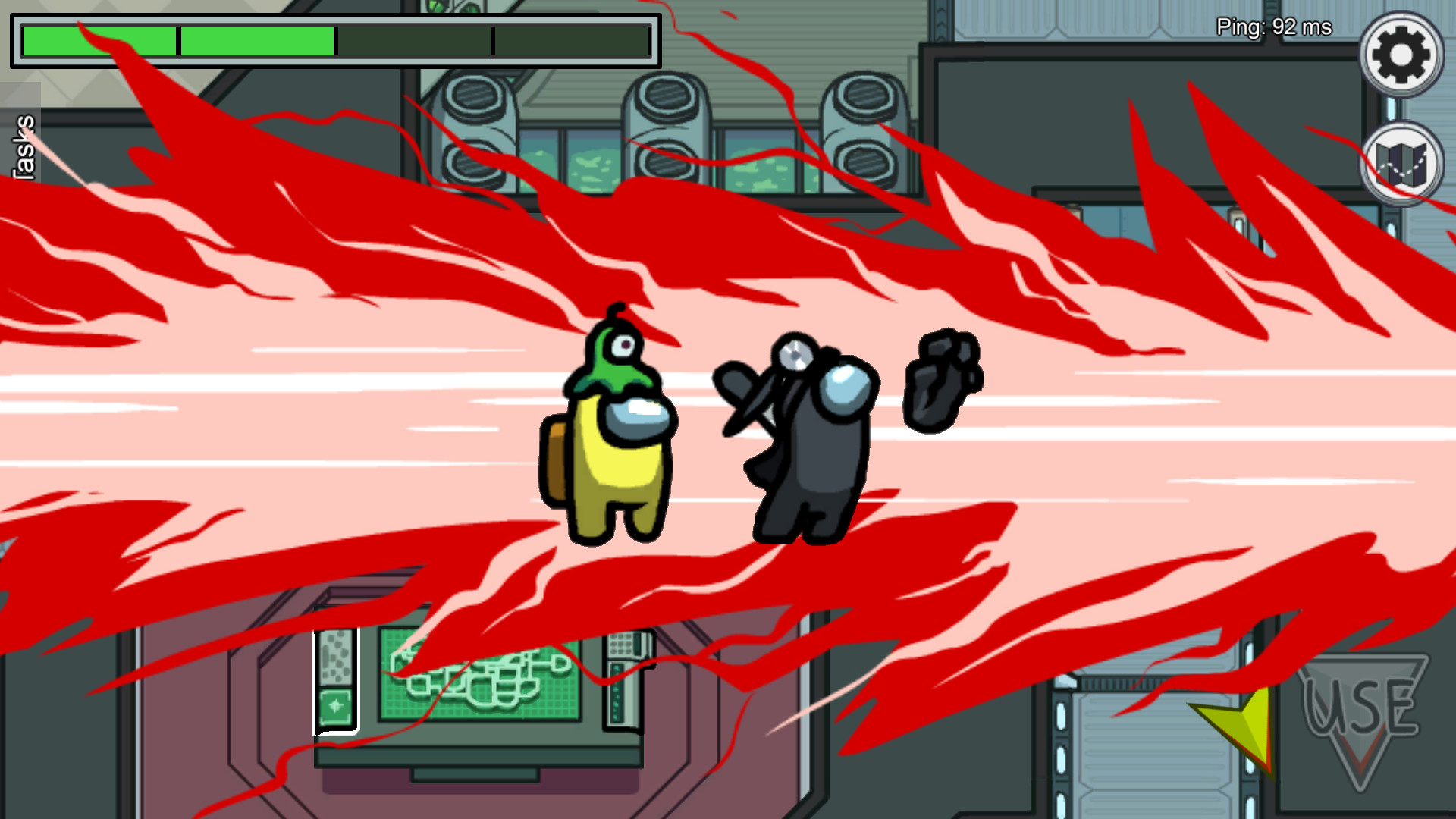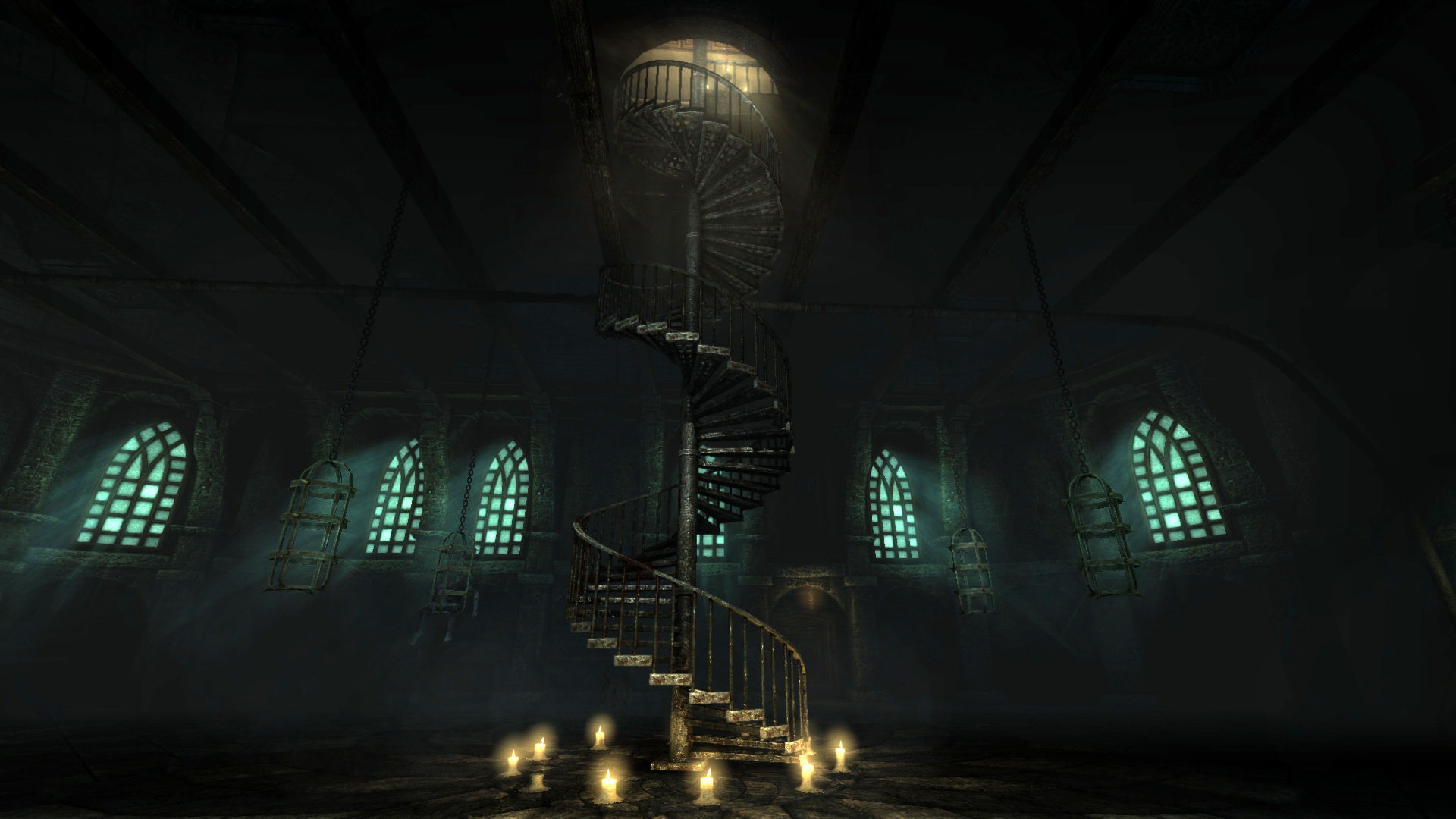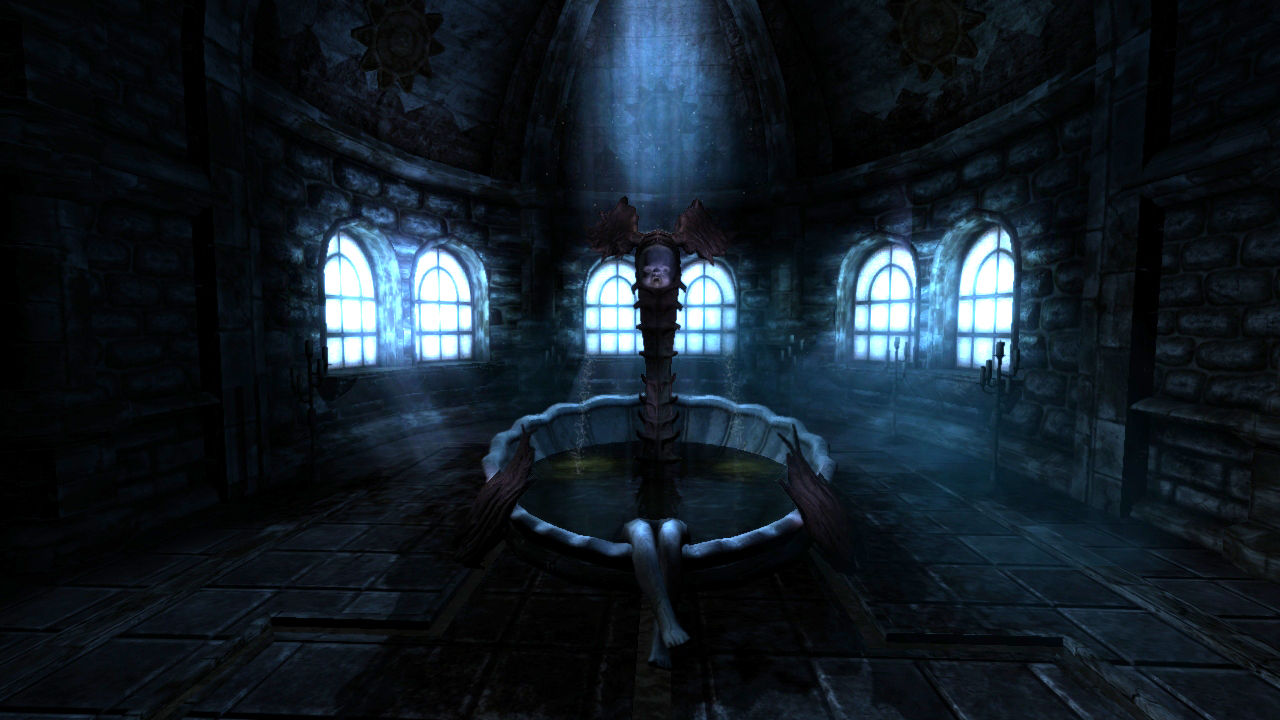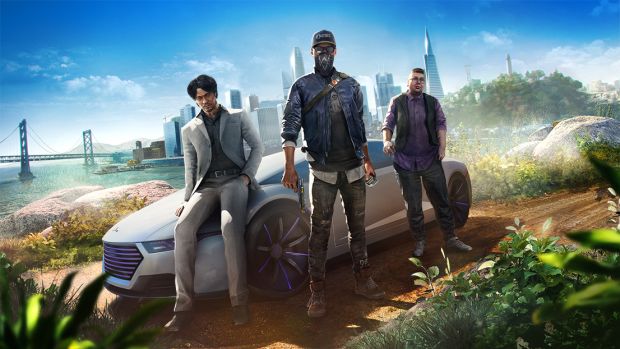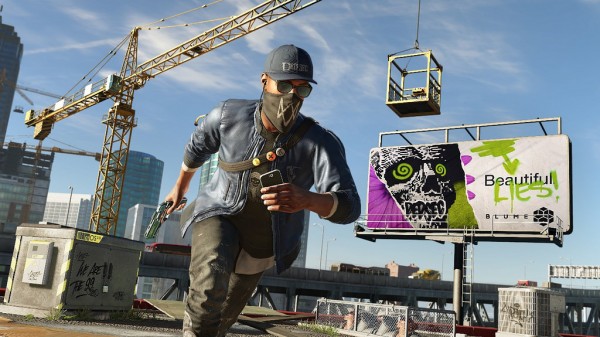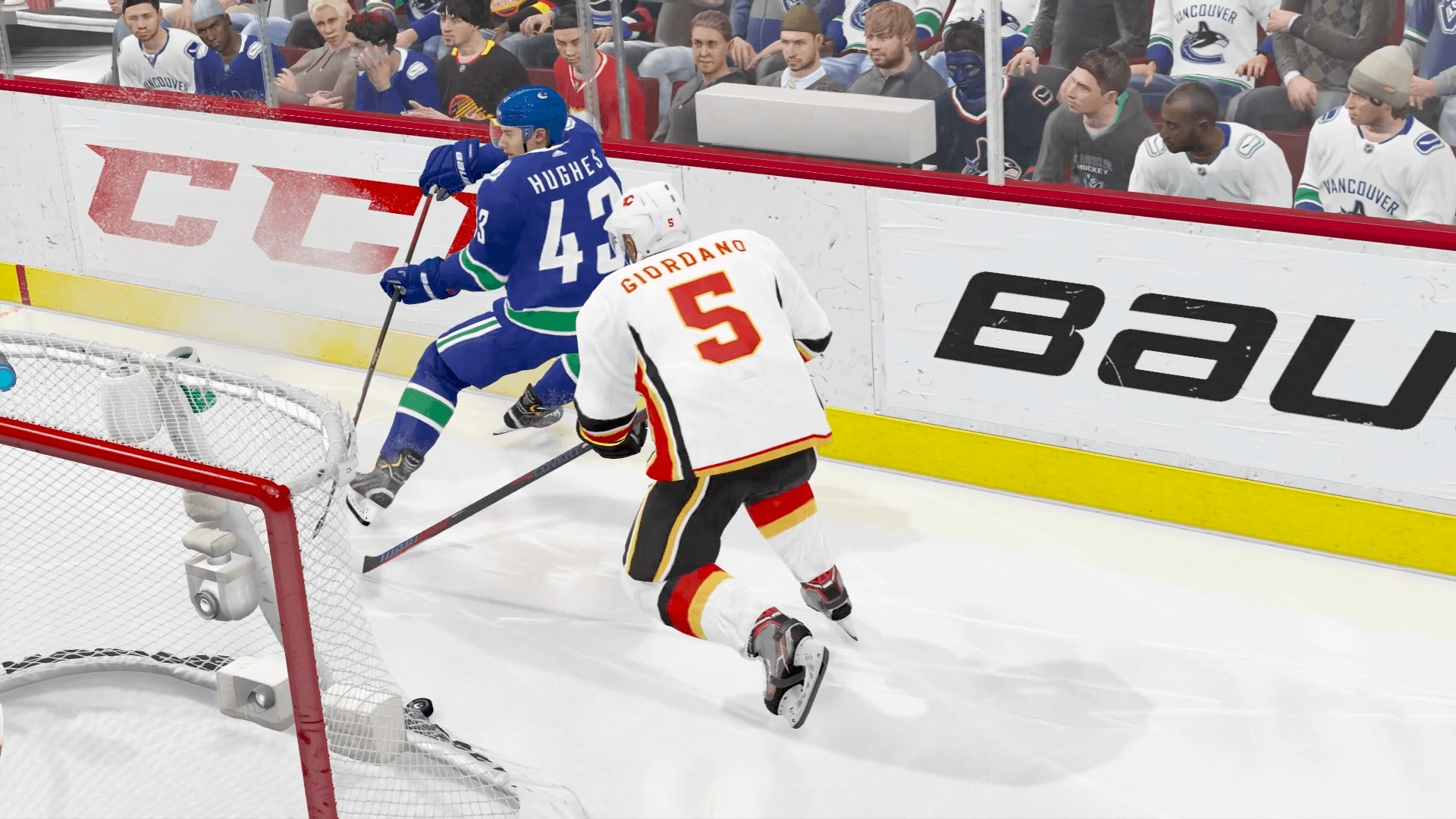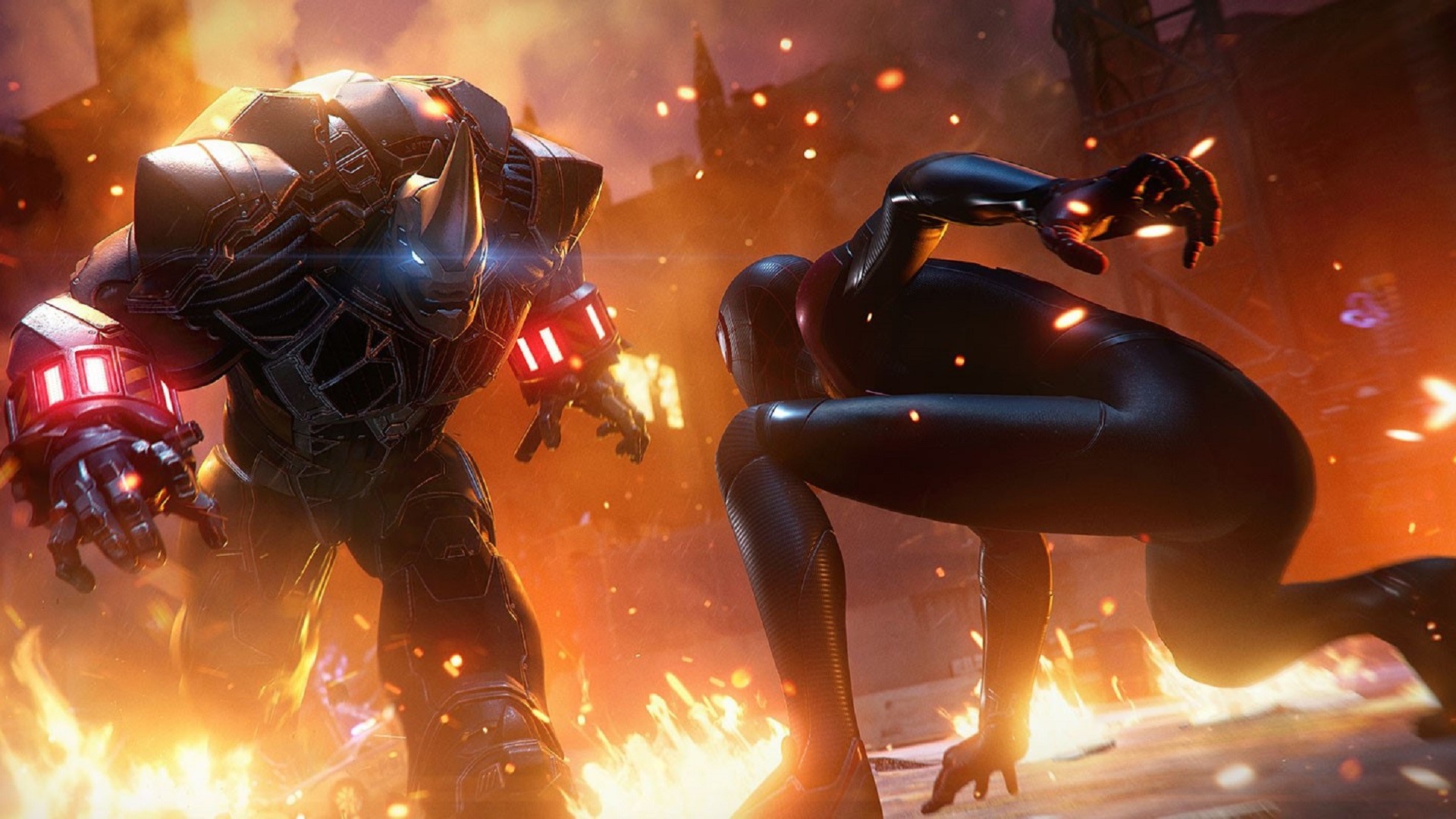Demon's Souls on PS5 Won't Have Ray-Tracing
Bluepoint Games' Demon's Souls remake received a bunch of a new details and some absolutely gorgeous new gameplay footage. Given the graphical fidelity and how amazing has looked thus far, where does ray-tracing factor in? As it turns out, ray-tracing isn't being implemented at all.
Creative director David Gavin spoke to LevelUp and confirmed the same. This wasn't because the PS5 is incapable of handling it. "It's not because we couldn't or because the PlayStation 5 couldn't do it, it's fully capable of doing it." Instead, Gavin said there's a "cost" to adding it in.
"It's like any other graphical improvement, there is a cost [to implement ray tracing]. If we had implemented ray tracing in the game, that would mean that we would have had to leave something out. There is a limited time in game development."
Whether ray-tracing would have affected the overall scope of the world or hampered performance is unknown. But as it stands, it's crazy to think that the remake has looked this good without it. One can expect two different graphical modes from the remake, as revealed by IGN – Cinematic, which runs at 4K/30 FPS with real-time shadows, tessellation and high resolution textures on even the smallest assets; and Performance, which runs at dynamic 4K but maintains a solid 60 FPS.
Demon's Souls launches alongside the PS5 on November 12th.
Destiny 2 Xur Exotics – Skyburner's Oath, Ophidia Spathe, Eternal Warrior
After some interesting offerings last week, Destiny 2's Xur is back to providing some run of the mill Exotics. You can find him on The Rig on Titan, perhaps for the last time with the destination entering the Destiny Content Vault in November. He'll be available there until the next weekly reset.
The Exotic weapon this week is Skyburner's Oath, an energy scout rifle that fires explosive slugs in full auto. Shooting from the hip allows the slugs to seek out targets while aiming down sights will cause them to travel faster and deal more damage (at the cost of lower fire rate). It's a decent weapon and can penetrate Cabal Phalanx shields – pick it up for 29 Legendary Shards.
Exotic gear for the week includes Ophidia Spathe (Hunter chest), Eternal Warrior (Titan helm) and Transversive Steps (Warlock boots), each for 23 Legendary Shards. Warlocks may want to look into Transversive Steps since it increases sprint speed and reloads one's primary weapon after some time. Otherwise, there are better options available for each subclass.
Elden Ring – FromSoftware "Greatly Appreciates" Enthusiasm and Support
It's pretty crazy how more than a year since it's reveal, we still have no new information on FromSoftware's Elden Ring. The dark fantasy action RPG, which is being developed along with Game of Thrones writer George R.R. Martin, was revealed at E3 2019. But since then, there's been no gameplay, indication of a release date or even a follow-up trailer (though we do know that Bloodborne and Sekiro: Shadows Die Twice composer Yuka Kitamura is working on it).
Well, there seems to be an update now but it might not be what fans are expecting. Following the release of Sekiro's free update, FromSoftware said, "We also greatly appreciate all the enthusiasm and support shown for 'Elden Ring', our next Dark Fantasy Action RPG. We hope you look forward to it." Again, not much substance but at least this confirms that the game still exists.
Elden Ring is currently slated for Xbox One, PS4 and PC with no word on next-gen console versions. Perhaps with The Game Awards coming up in December, a new trailer or some new details may be revealed. Stay tuned in the meantime and keep the hope alive.
We also greatly appreciate all the enthusiasm and support shown for "ELDEN RING", our next Dark Fantasy Action RPG. We hope you look forward to it. pic.twitter.com/NOUBeacOPd
— FROMSOFTWARE (@fromsoftware_pr) October 31, 2020
Everspace 2 Early Access Delayed to January 2021
Regardless of how you feel about CD Projekt RED delaying Cyberpunk 2077 again, it's incredible how the game's release is impacting others. Take Rockfish Games' Everspace 2 whose early access launch was delayed to December to avoid contending with the FPS/RPG. Thanks to the latter now releasing in December, Everspace 2 early access will now launch in January 2021.
Providing an update on Kickstarter, the developer said that, "Let's get the cyber elephant out of the room right away: The Cyberpunk 2077 release has just been pushed back to December 10, which is a major blow to our planned Everspace 2 Early Access release in mid-December. Not only will every media outlet and content creator cover the arguably most-anticipated AAA game in history throughout the entire holiday season (and not much else), we also know that there's quite a bit of audience overlap within our community (and our team)."
In a follow-up email to PC Gamer, Rockfish stated that, "We are aware that Everspace 2 fans will be unhappy, but competing with the arguably most anticipated video game in history is just not a good idea." In the meantime, closed beta keys will be going out on November 2nd to backers who pledged €30 or higher. Once early access goes live, new keys will be provided to replace them.
This trend of delaying one's game avoid competition with Cyberpunk 2077 isn't anything too new. Grinding Gear Games also recently announced that its next end-game expansion for Path of Exile would launch in January 2021 to avoid forcing players to choose between both releases. Perhaps Ubisoft may consider delaying Immortals: Fenyx Rising, which is out on December 3rd, to a later date? Time will tell so stay tuned.
PS5 vs Xbox Series X|S – Charting the Course of the Next Generation
The current generation ended up being a wonderful one; in the tradition of the "tick-tock" cadence that gaming generations follow (where the odd numbered generations introduce a major new paradigm, that the even numbered ones then refine and iterate on), this "tock" generation saw a refinement of a lot of the concepts brought to the table during the PS3/Xbox 360/Wii era, resulting in some of the best output the industry has seen in a very long time.
However, the landscape of the industry was not quite as exciting; the PlayStation 4 got an early lead over the Xbox One, and then it never lost it. The Xbox One itself continued to flounder, suffering from the decisions that had been made in the years leading up to it, and ultimately ended up getting lapped by a system that launched three and a half years after it – in under three years, to boot.
The next generation, however, looks significantly more exciting on this front. Going into this next epoch of video games, both Sony and Microsoft seem to be reasonably well positioned, with neither having made the kind of critical errors that sunk the PS3 or Xbox One. While Sony is obviously going into the next generation in a dominant position (owing to the massive install base and IP recognition the PS4 generated), Microsoft, too, have positioned themselves for a successful next gen, with multiple entry points into their ecosystem, and a massive expansion of their first party portfolio that addresses the longstanding issue of lack of compelling Xbox exclusives.
Before proceeding any further, let's make it clear that for the purposes of this comparison, we're not going to be looking at Nintendo. This isn't because of any made up reason such as "it doesn't count" that gets flung about in console war rhetoric to downplay the success of a platform that has performed better than anyone expected, but more because it is very difficult to figure out what to compare things to as far as Nintendo is concerned. Do we compare the performance of the Switch to the PS4 and Xbox One, or to their successors? Do we compare it to both? That seems unfair on all sides (given the Switch has a roughly 4 year head start); if we were to then say that the Switch 2 (or whatever Nintendo ends up doing) is what their entry for the next generation will be, we find ourselves at an impasse, given that the Switch 2 not only does not exist, but is years away from even being announced. Any sensible comparison with Nintendo is therefore fraught with lots of subjectivities that only serve to muddy things. Suffice it to say, the Switch is doing extremely well, and that I expect it to continue being dominant for years to come, and end up with a massive install base when all is said and done.
The Switch aside, then, leaves us with the longstanding Xbox and PlayStation battle that the last few rounds of the console wars have all devolved into. This battle is significantly more interesting this time around, because it appears that the next generation will probably not be as much of a total one-sided match as this generation was. This, ultimately, comes back to what I said before – Microsoft and Sony are both headed into the next generation from a much more secure position than they had coming into this current one.
Sony, of course, will probably continue their insane success with the PS5. In fact, judging by the social media metrics the PS5 has enjoyed (which isn't a strictly accurate representation of what to expect, but at least a reasonable gauge of excitement for it), they might even outdo their already record breaking run with the PS4. The PS5 is following in the footsteps of a massively successful console (the most profitable console ever, as a matter of fact), with which it is fully backward compatible – leading to something that I have previously referred to as ecosystem lock-in or "stickiness". Essentially, this allows the PS5 to build off of the PS4's existing install base, rather than having to start from scratch like the PS4 did.
Sony has made all the right moves with the PS5. They've priced it well, they have marketed it well, the launch lineup looks great, and there's no serious misstep to disrupt their momentum. Given their existing global success, then, it is hard to not see the PS5 also do extremely well. I would venture to guess that the PS5 will be the higher selling console next generation again.
However, I do not expect it to be as overwhelmingly one sided as it was this generation. That's not because of anything Sony has done wrong, it's more because of what Microsoft hasn't done wrong (or, put another way, what they have done right). Unlike the Xbox One, Microsoft have positioned themselves much better with the Xbox Series consoles. The Series X is the most powerful console ever made, which means Microsoft gets to avoid the negative PR that the Xbox One accrued for having poorer versions of multiplatform games. Microsoft has set up multiple cheaper price points for getting an Xbox ecosystem, including the cheaper Xbox Series S (which is the cheapest next gen console you can purchase), as well as their All Access payment plan pricing, which allows you to get an Xbox for basically no upfront cost, and manageable and cheap monthly payments.
Microsoft also has bolstered its first party portfolio, created a continuous ecosystem of Xbox consoles spanning four generations, with all player purchases honored, and, perhaps most significantly, they have Game Pass, the value proposition of which continues to mount with every passing day, and which, combined with the low price of a Series S (or even Series X with All Access), ends up presenting an incredible value proposition for budget conscious customers.
All of this indicates significantly better prospects for Xbox this generation than the last; a cheaper price (with the value that Game Pass provides) means that psychological friction for also getting an Xbox console has been minimized, whereas the possible existence of major titles such as The Elder Scrolls 6 as Xbox exclusive means that even many PlayStation players might look into getting a cheap Xbox, if only as a secondary system – in turn, obviously, leading to higher sales for Xbox.
Sony and Microsoft are both positioned to do well in other areas next generation too. Sony has indicated that it sees services as an integral part of the PlayStation ecosystem, but the PlayStation Network thus far has been… subpar, to put it nicely. However, with a lot of behind the scenes reworking ahead of the PS5 launch, and a partnership with none other than Microsoft to power its backend, Sony's services, which are already often more profitable in one year than Xbox is across several, serve to only do substantially well.
Xbox, of course, dominates on the services front, and Game Pass is now positioned to be the default, pervasive subscription and cloud streaming service across the board, thanks especially to Microsoft bringing it to non-Xbox devices such as PCs and smartphones. This means that Microsoft's addressable market has now grown – for people who simply would not be able to afford a console, they can still offer a cheap subscription to stream The Elder Scrolls to their phones and get in on things that way. Xbox services should see significant growth in the coming generation, and will probably be an ever growing part of the overall Xbox success story.
The good thing about the coming generation is that, for the first time in over a decade, all the major industry players seem well positioned for success. Even though I foresee PlayStation doing better on the hardware front, and Xbox doing better on the services front, I see both being successful on both fronts overall. For fans of the medium, this is the best possible outcome – two healthy and thriving platforms means more people playing games, and more great games being made to sustain those platforms. The future is bright.
Note: The views expressed in this article are those of the author and do not necessarily represent the views of, and should not be attributed to, GamingBolt as an organization.
What Exactly Makes Among Us Work So Well?
An interesting thing I like noticing about video game culture is that every few months there seems to be a new, trendy, light-hearted game that rises to the top of the pile and enjoys a nice period of uninterrupted fun among casual and hard-core gamers alike. They don't always cancel each other out and many of them can stay successful at the same time, but they do seem to be handing off the spotlight to the next one at a fairly regular interval of the few months or so. It's a trend that I like seeing. Whether Minecraft, Fortnite, Overwatch, or Fall Guys are your cup of tea or not, they all seem to, at least for a time, embody what gaming is all about; bringing people together and having some ridiculous fun for a while.
It seems that the game, Among Us, is the newest addition to this little club of popular hit games. But why is that? What does Among Us do that has made it garnered so much interest across so many different types of gamers all at the same time? Among Us started out as a fairly rudimentary game that could only be found on mobile platforms and didn't even have online multiplayer at first. Thanks to a small but still very dedicated and enthusiastic community, it has come a long way since then. But, as is the case with so many classics the core ideas of the game we're simple.
Just complete a series of tasks while rooting out the imposters, or of course, if you are an imposter wipe out everyone else who isn't one without getting caught. This is a core mechanic that has surfaced in many different games in many different ways over a very long time. Even Minecraft has a similar mode that remains fairly well populated to this day. Where Among Us gets it right though is its laser focus on that very one idea instead of a bunch of ideas that just happened to include it. It also makes it a little more fun and raises the stakes by stopping people from communicating during the core moments of the gameplay. This adds plenty of tension and room for speculation as players try to see who is being the most suspicious.
Eventually all of the speculation culminates into a vote, and as you might imagine whoever gets the most votes it's shot out of the airlock and removed from the game. Players can also decline to vote if they don't feel confident enough about picking one person or another, and this can lead to some interesting results that can be just as baffling as they are hilarious once everyone realizes how right or wrong they were. Being one of the imposters is perhaps the most fun part of the game and a big reason why it's such a hit right now. Being an imposter grants you a series of abilities that are not available to the other players like being able to travel through vents, cut off oxygen, or turn out the lights to wreak havoc on the other players in hopes of isolating them, which is the absolute goal.
Causing problems on the spaceship is what triggers the other players to go fix things, hence causing them to potentially separate and open themselves up to being eliminated by the imposters. Once a player is isolated and away from the group the imposter can kill them and begin their reign of terror on the crew. This of course opens the imposter up to being discovered, though. So it takes a skilled player to get away with this several times in a row and win the game. Given that there are so many opportunities for error on the part of the imposter, The more it happens the more likely it is that somebody will see something fishy put the pieces together and it'll be all over for them. Once you are caught doing any of the aforementioned fishy things the jig will be up.
I think this is a big reason why the game is popular. It forces people to analyze what's going on around them, keep an eye on other players, look for patterns and fishy behavior and make a call as to whether or not someone is actually up to no good or if it's just a mistake on the part of the Observer. Unless somebody is truly caught red-handed you can never really know for sure, and that sense of doubt can keep things lively over and over again. Completing the tasks is the other side of the gameplay hemisphere and it also has its own bag of tricks that keeps things interesting. Fixing broken wires, repairing various pieces of equipment, and breaking up asteroids to protect the ship's integrity are all surprisingly fun on their own.
Fun little things like this injected into any game can add a little bit of depth and a little bit of fun where it might not have been expected otherwise. Making sure that being a regular crew member is just as fun and rewarding and motivating as being an imposter is an important part of the game and that's another big part of why it's so successful right now.
Unlike a lot of other two sided multiplayer experiences that are out there these days where people are largely just waiting for their turn to be the fun thing, Among Us does a good job of making sure all the roles are fun to do and have their own sense of tension and reward for doing them well. so it's not just about getting through the level as the character you're not totally thrilled with so you can get to do the fun thing it's actually about having fun no matter what roll you're in and what your goals are. It's a balanced, well-planned experience.
Among Us is a well-made game that probably still would have been plenty successful had the events of the world not transpired in the way that they did. It lends itself well to the streaming community, it practically generates its own memes, and most importantly it's just a fun easy to get into experience but anybody can play and appreciate it.
Note: The views expressed in this article are those of the author and do not necessarily represent the views of, and should not be attributed to, GamingBolt as an organization.
Amnesia: The Dark Descent Was a Much Needed Shot of Adrenaline for the Horror Genre
The few years after the early 2000s before the 2010s was not a great time for horror games. Silent Hill and Resident Evil were making games that paled in comparison to their earlier entries, and most of the oxygen of the gaming world was being sucked up by Mass Effect 2. Great games, sure, but the horror community was still largely relying on old classics from over ten years ago and mediocre modern ones that were largely just rehashing the same ideas and not even doing them justice most of the time. It was a dark time.
It wouldn't last too long though. By most accounts, the horror genre of video games was almost single-handedly revived by a little-known PC game called Amnesia: The Dark Descent from Frictional Games. It didn't happen all at once though. There were a lot of reasons why the game had such a meteoric rise to the level of popularity it's at now. First and foremost, one of Amnesia's most interesting elements that really set it apart from the competition, and even set it apart from other horror classics from many years ago was its setting.
The survival horror genre has taken games into all sorts of different settings and locations, but a castle in 1839 is a new one. On top of that a main character who literally had no idea who he was why he was there or what he was doing, instilled a certain sense of uneasiness and vagueness that allowed the players imaginations to fill the gaps with whatever came to mind, while also keeping the door open for them to be interested in uncovering the answers to the questions posed by the main character. Sure, there are plenty of games where the main character has some form of Amnesia and has to put the pieces together to figure out why he or she is where they are, but Amnesia leaned into that characteristic with such confidence, and in such an unfamiliar setting, that those two elements complement each other in a very strong way and made the game extremely effective from the get-go.
As the game progresses and you begin to unravel it's mysteries, Amnesia still somehow is able to avoid letting you feel comfortable or confident about your progress by continuing to pull the rug out from under you with just how bleak and mysterious the environment can get. As the player makes their way through unravelling the main character's past and figuring out why everything is happening this way, they are also saddled with dealing with "the shadow." This creature not only serves as a perfect way to keep the pressure on the player throughout the entire game but also quickly became one of horror's most iconic monsters in the video game space, and remains so to this day.
While Amnesia did not invent the idea of making the main character completely helpless and consistently vulnerable, it did pull it off in its own way the introduced stealth as a main pillar of the experience and hiding from an enemy that is actually roaming around the environment in real time. On top of all that there is also the issue of maintaining Daniel's sanity by staying in an area that is lit to at least some degree. As you might imagine this is a fairly difficult task to handle inside a giant castle with very few windows or sources of light, cue the tinder boxes, which essentially replace guns and ammo as the players primary resource to manage on top of keys and other items of Interest here and there.
Atmosphere, a clever setting, and a very compelling story were all important elements that Amnesia got right. but another thing that it did very well we're puzzles that, for the most part, made actual sense. If there is one legit complaint you can level at classic horror games from the late 90s and early 2000's, it's that many of the puzzles in those games were so incredibly obtuse that they almost felt like commercials for strategy guides. I understand that a key for a door might get a little bit boring and you might want to mix that up a little bit with some different elements, but the liberty that some games of that era were taking with what a solvable puzzle could be were just getting ridiculous, and could very well be partly responsible for why the genre declined shortly after that.
Nobody wants to spend their hard-earned money on a game just so they can go home and be stuck for 5 hours. Amnesia seemed to at least in some small way be aware of this. Puzzles were not overly simplistic or easy to understand, and they did require some critical thinking, but they were largely rooted in earthly things that made actual sense and used the physics of the environment to open hatches or move things around in such a way that new paths would become available. Frictional Games seems to have a knack for this as we saw more of that and SOMA many years later.
While it's true that Amnesia: The Dark Descent's popularity was certainly helped out by the streaming community and just the general reaction video community propping it up with constant videos of people freaking out over its various terrifying scenarios, the truth is the game would not have gotten as far as it did if it didn't combine these elements in a smart way. Its ability to manage darkness, it's story and its threats to the player were frankly unmatched at the time by most other horror games of that era. Amnesia earned every compliment that it got but it's also important to point out that horror left a massive void for somebody to fill for quite a long time as I touched on earlier.
I remember telling myself a couple years before Amnesia came out that the genre was pretty much dead and I would just need to be happy with replaying the original four Silent Hill games for the rest of my life if I wanted to continue to enjoy survival horror video games. Thankfully I was dead wrong about that. All the horror genre really needed was a well-deserved breath of fresh air and a new perspective on what survival horror could be. Amnesia: The Dark Descent is that breath of fresh air, there's no other way to slice it. Given that it is a 10 year old game and even horror games that are obviously inspired by it have come a long way since then, it would make sense that there are other games out there of this style today that are better in terms of level design and overall gameplay.
But there's no denying what this game did for the genre. When survival-horror was on its deathbed Amnesia gave it a much-needed shot of adrenaline, and spawned a whole sub-genre of first person stealth oriented horror games that are continuing to be iterated upon to this day. Some of these sorts of games are turning out better than others, but all of us owe all of that to Amnesia: The Dark Descent.
Note: The views expressed in this article are those of the author and do not necessarily represent the views of, and should not be attributed to, GamingBolt as an organization.
Watch Dogs 2 Was One Hell of a Game
The world that the first Watch Dogs game created went a long way with changing what could be possible in an open world science fiction action game. Despite it not quite living up to its own promises Watch Dogs did have potential to be something special and stand out from the genre in a meaningful way. Watch Dogs didn't rub everybody the right way with its initial release, but you'd be hard-pressed to find anyone who wouldn't at least acknowledge that it's sequel Watch Dogs 2 was a massive improvement in myriad ways.
Of course, the open-world action-adventure genre is nothing if not completely crowded and bursting at the seams with creative games that are all trying to do something special to stand out. Watch Dogs 2 succeeded at standing out in its genre more than many other games of the same genre and at that time did. By greatly expanding on the ideas of the original game, and introducing a character that was far more interesting and fun to play as, Watch Dogs 2 finally made good on much of what was expected of the original game while also injecting a little bit extra here and there for good measure.
Developed by Ubisoft Montreal, Watch Dogs 2 was no slouch in terms of scope, possibilities, or just overall polish. Instead of just doing more of the same from the original game and slapping a 2 on it, Ubisoft Montreal deliberately collected as much feedback from fans of the original game as possible and addressed it in the second game by greatly expanding what was possible and just making it more fun to do it. First and foremost, the best thing that Watch Dogs 2 switched up was its general attitude towards the idea of what it is. Where the first game was trying to be somewhat gritty, dark, and mysterious, Watch Dogs 2 went out of its way to be a little bit more lighthearted about the whole thing.
That's not to say that the game didn't rely on a fairly serious cyberpunk story and meaningful motivations to go along with it, but something about the writing and the setting of Watch Dogs 2 just made it feel a little bit more like a fun sandbox that was just more inviting to me as a player than the original, a game that almost seemed to be so cryptic that it didn't even want to be played. This was a very smart idea for the sequel, given that games like Grand Theft Auto and Saints Row have undeniably seen more success and established more of a meaningful identity for themselves by opening up to the possibility of just being a game for players to have fun in. Maybe they could encounter a meaningful story along the way if they wanted to but if not that would be fine. For this sort of game, it's always best to leave that sort of thing up to the player to decide.
Watch Dogs 2 drives its point home so much better than the original did in large part because of the main character, Marcus Holloway, a wrongfully accused individual, that, because of his illegitimate criminal record placed on him, actually becomes a threat to the system that wronged him. It's not a particularly unique sci-fi story. Surely older movies like Logan's Run deserve a wink and a nod here, but the alternate 21st century twist on everything does keep it from gliding too far into familiar territory. This is another thing that Watch Dogs 2 gets very right that a lot of other games don't. It skillfully borrows ideas from things that have worked in the past but injects just enough of its own flavor to make its DNA feel fresher than it actually is. There's certainly nothing wrong with that. In fact, in this day and age with so many ideas being done to death, including cyberpunk stuff, It's nice to see things that feel fresh and unique even if they only offer occasional glimpses of their own ingenuity here and there.
The futuristic yet still modern version of San Francisco is expertly recreated in Watch Dogs 2. Familiar densely-packed building structures line the streets of the city and perpetuate the feeling that this is where you are; a futuristic West Coast where anything goes if you know how to harness technology. The city is not just brimming with reminders of its locale though, what's more important is that there are opportunities for all kinds of shenanigans at every turn.
Where the original game stopped just short of making you really feel like you were in charge of the city, Watch Dogs 2 gives you control over an arsenal of devices like remote controlled cars and drones that can give you a much better idea of what is going on around you, and help you plan out and execute elaborate schemes for any situation. Hacking traffic lights and security cameras return, but here, there's more of them, more types of them, and more options of what to do once you have control of them. It's not quite what Watch Dogs Legion seems like it's shaping up to be but in terms of what was expected of open world games in 2016, Watch Dogs 2 was a shot out of a cannon in this regard.
Meeting up with other players online and aiding each other in completing various missions was also a nice touch that brought Watch Dogs 2 up another notch over its competition. Even still today most open world action-adventure games tend to focus mostly on their offline content, and there's nothing wrong with that, especially if what's in the offline content is satisfying and worth the asking price.
Watch Dogs 2, as usual, goes a little bit further than that though with several multiplayer modes that include racing, 2 v 2 battle mode, cooperative modes, and more, that all use the world of Watch Dogs in a way that would only make sense here. They easily could have just crammed generic multiplayer modes from a Call of Duty game into a watchdog game and called it a day, but seeing as how hacking the city and being in control of surveillance are key elements in the multiplayer modes in Watch Dogs 2 they feel unique to this game and not just tacked on.
In the few areas where Watch Dogs 2 struggles, it more than makes up for its wealth of ways to play and scope of things to do in the game. The depth that its ideas are taken to are a sight to behold regardless of how you feel about the direction of the game's story or its characters. At the end of the day this is a densely-packed Ubisoft style open world game, as such, some folks who might feel burned out on that sort of thing might have passed this one up. I think that would have been a mistake though. Not only does Watch Dogs 2 learn from the lessons of the previous game in multiple ways, but it manages to change what was a franchise destined for mediocrity into an unmatched sandbox of cyberpunk goodness for all of those who want some.
Note: The views expressed in this article are those of the author and do not necessarily represent the views of, and should not be attributed to, GamingBolt as an organization.
NHL 21 Guide – How to Perform Dekes, Win Fights and Earn HUT Coins
NHL 21 offers lots of fun, interesting moves to perform. Dekes are part of that line-up and there are all new kinds to execute. Let's look at The Kucherov first which is based Nikita Kucherov of Tampa Bay Lightning. This is a unique fake that's also not too hard to execute. Simply press L1/LB and flick the left stick to the left or the right stick to the right.
Then there are Slips, Chips and Banks which can help create space, among other things. To execute a Slip, use the left stick to skate on the boards and press L1/LB. For a Chip, hold L1/LB while skating and then press R1/RB. Use this when trying to get pass a defender on the open ice.
Banks let you pass the puck back to yourself with the boards. Regular Banks can be executed by close to the boards, holding L1/LB and pressing R2/RT. For Net Banks, make sure you're behind the goal. Hold L1/LB and press L2/LT.
How to Start (and Win) Fights
It wouldn't be hockey without a fight breaking out. Starting a fight simply requires you to press Triangle/Y. These same prompts can be used to accept a fight. Of course, it's also possible to start a fight by body checking an opponent or shoot at the goalie after making a play.
Before getting into a fight, keep in mind the player that's being sent out to scrap. Avoid using your best players since they'll be in time-out for five minutes. Also, don't just lay in the punches since that will rapidly deplete stamina. Instead, dodge and block your opponent's offense, look for an opening when they're winded and work 'em over. If you successfully win a fight, then you'll receive an energy refill for the team.
Here are the controls for fighting:
- Grab – L2/LT (hold)
- Fake Grab – L2/LT
- Block/Lean – R2/RT (hold)
- Dodge – R2/RT
- Push – Press up on the left stick
- Pull – Press down on the left stick
- Overhand Punch – Press up on the right stick
- Uppercut – Press down on the right stick
How to Earn Coins for HUT
If you've played Ultimate Team in FIFA or Madden, then playing HUT in NHL 21 is pretty similar. You earn Coins which can be spent on items like consumables, player items, packs and so on. Points are purchased with real money and also used for buying packs. You'll essentially need a steady income of Coins to progress through HUT but fortunately, the tips for earning them are the same.
First up is to work your way through the different challenges, since they can be completed realtively easily and provide a good amount of packs. It's also possible to earn consumables and Coins through this method. Partake in Square Battles as well – these are offline matches against other HUT teams and also provide packs and Coins upon winning.
Next up is are the online HUT matches. The amount of Coins earned depends on your performance in the match along with the outcome (losing nets less Coins). Along with currency, completing matches will also go towards earning cards and packs. Keep an eye out on Milestones and HUT objectives along with daily objectives and any special event tasks for even more ways to earn Coins. Finally, don't be afraid to look at the Auction House.
As usual, you'll want to look for good cards, buy them and flip them for a chance at turning a profit. Selling cards in bulk is also possible though not as lucrative. Hang on to any decent cards and look for chances to sell them down the line.
Marvel's Spider-Man: Miles Morales Leaked Video Shows Insanely Quick Load Times On PS5
From the beginning of the upcoming next generation console marketing cycles, probably the biggest new feature that was hyped up was the SSDs the new systems would have. Sony, especially, seemed to design their PS5 around SSD capabilities. We've seen some examples of just how incredibly fast loading can be on the system, and now we have another one from the upcoming Marvel's Spider-Man: Miles Morales.
In a leaked video found by Reddit user nicoreese, which you can see below, it seems to show someone who is in possession of a PS5 and has a copy of Miles Morales. He boots up the game, which only takes about 2 seconds to get to the main menu and then from there gets into the game in roughly 7 seconds. While it's not explicitly made clear this is a cold boot, considering how it goes directly into the main menu it most likely is, but even if this is coming from suspend it's still incredibly fast. Loading was one of the many ways in which the PS5 version of Miles Morales was said to be optimized.
Marvel's Spider-Man: Miles Morales will launch for PlayStation 5 and PlayStation 4 on November 12th, and an incredible skin based on the Into the Spider-Verse film was just revealed which you can see a demo of through here.
PS5 Loading times: Spider-Man Miles Morales from Home Screen to in-game in just 7 seconds from PS5
